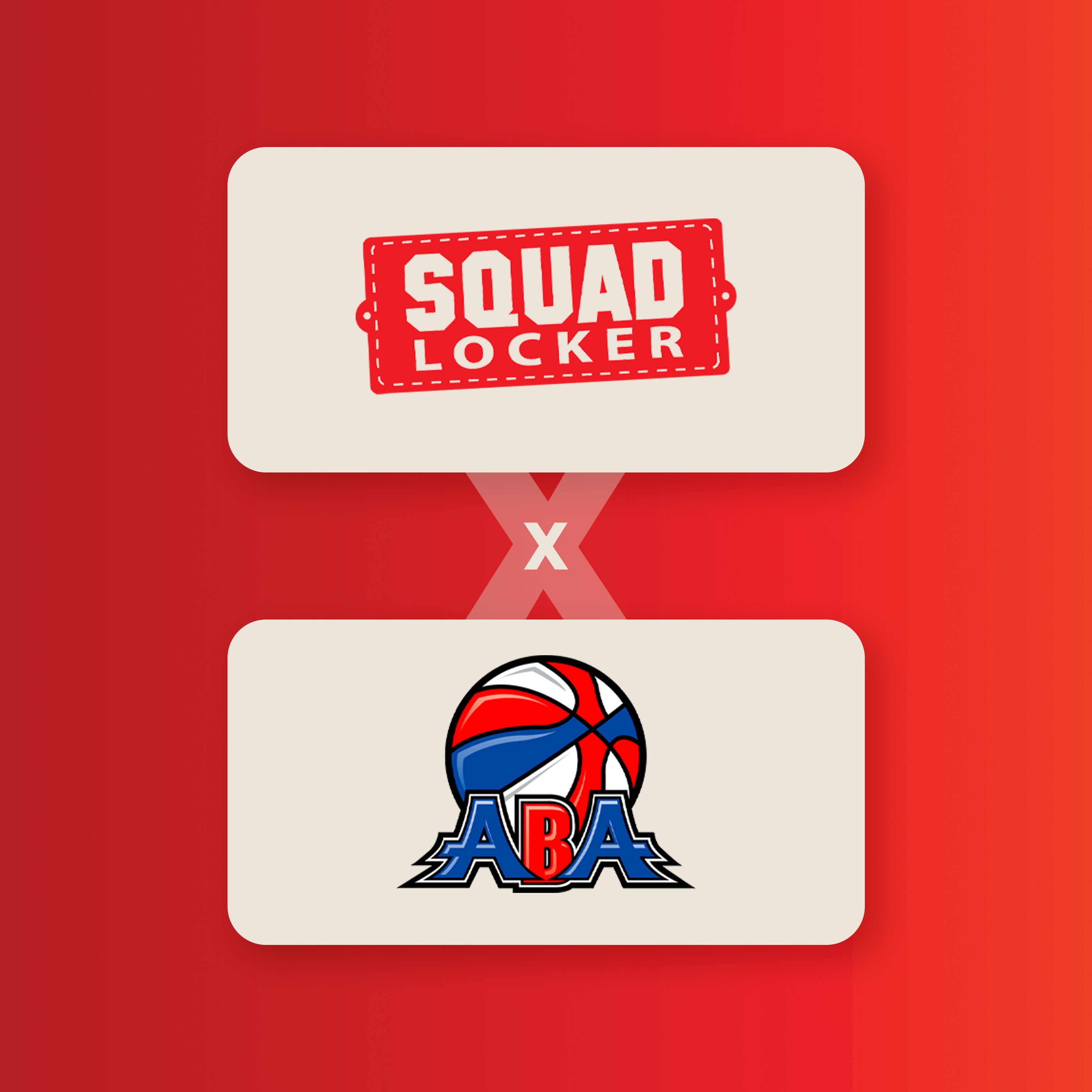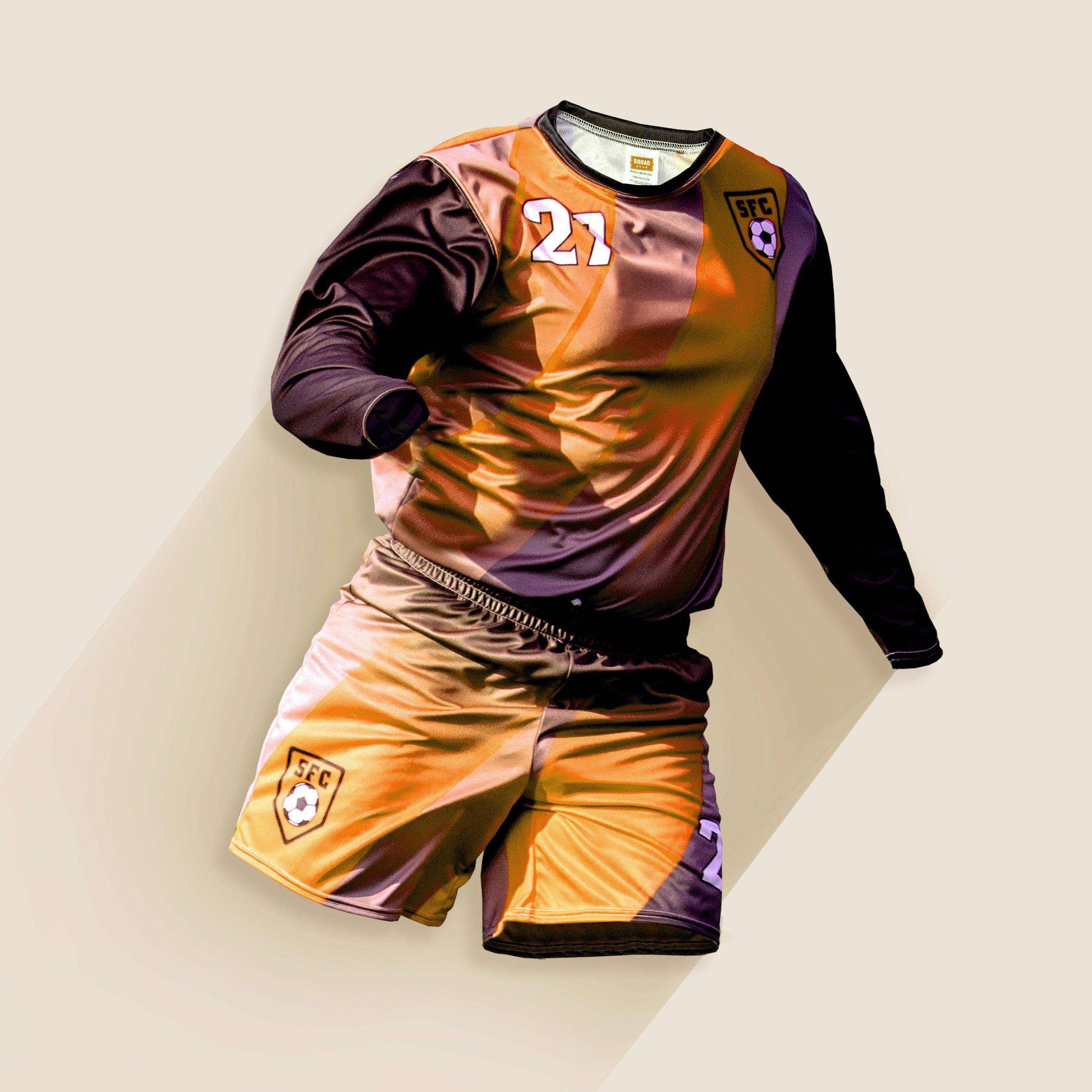How do you thrive in adverse situations?
By practicing creative leadership in challenging environments. Like being a woman in athletics, for instance. It’s tempting to behave sedately, the way women are often socialized to do. But sometimes, that’s the wrong thing for everybody.
Digit Murphy, head coach of the women’s professional hockey team, Kunlun Red Star, and head coach of Team China Women’s Ice Hockey, knows firsthand the challenges and rewards of being a woman in sports leadership.
In this episode of the On the Whistle podcast, I talked with Digit about elevating the conversation around the role of women in sports.
We discussed:
- Who Digit is and what her background in coaching women’s hockey looks like
- How Digit earned respect as a woman in athletics
- What women often want and why they shouldn’t want it
Listen now
Full transcript
Gary Goldberg:
Hey, guys. Gary here. Before we get to the show today, I wanted to highlight our sponsor SportsEngine. SportsEngine is dedicated to making the life of a youth sports volunteer easier. Through their applications, people are able to save time on administrative tasks, allowing them more time to focus on developing their athletes. More than a million teams, leagues, and clubs use SportsEngine every day to run their websites, promote their programs, and to collect sign-ups. They also offer an easy solution for getting uniforms delivered directly to their athletes' homes. It's called SportsEngine Gear, and you can check it out at sportsengine.com/gear to get started. Great. Now, onto our show.
Announcer:
You're listening to On The Whistle, the podcast that explores the impact that coaches, teachers, and mentors from youth sports organizations and schools have on young people's lives. Let's get into the show.
Gary Goldberg:
Welcome everybody to another episode of On The Whistle where I'm super excited to have on our show today, Digit Murphy. Digit Murphy is a native Rhode Islander. She was born and raised in Cranston, not too far from SquadLocker's global headquarters here in Warwick. Digit probably has too many accolades and accomplishments to mention, but I'm going to try and hit some of the highlights. She was a four time letter winner as a female hockey player at Cornell University where she was also captain her junior and senior year. And if I'm correct, I think you got two Ivy League titles there, Digit?
Digit Murphy:
We did.
Gary Goldberg:
Later becomes head coach of Brown women's hockey, Brown University women's hockey. Eventually becomes the single most winning D1 hockey coach of both men and women at the time. I don't know if that record still stands, but you held it for a period of time.
Digit Murphy:
No, people have caught up. I left the game almost 12 years ago.
Gary Goldberg:
So, they caught you, but they couldn't keep you while you were in the game. Digit's done a bunch of other really interesting stuff, as well as the head coach of the Chinese National Olympics, Canadian women's hockey. And right now serves as a head coach for the Toronto Six, which is a national women's hockey league expansion team. So, Digit, super excited to have you on with us today.
Digit Murphy:
Thank you. I'm actually... The coaching gig was actually secondary. I first started out as the president of the club here in Toronto. So now I wear two hats, kind of a [inaudible 00:02:36] coaching GM. I'm the coach and president. So, it fits me-
Gary Goldberg:
I love it.
Digit Murphy:
Especially with COVID. But yeah, and then just before I knew, I had a board call for our nonprofit, Play-it-Forward. So what we really try to do is elevate the conversation about women in sport. I'm lucky enough to have a platform that's high enough, so people actually respect what I do, but I think there's so many people in the world, especially women, women coaching, women volunteering their time in the community, teachers that really are the champions in the community. I've just happened to have the platform. So I'm happy to be here. I'm happy to support SquadLocker. I know a couple of our teams do. I think our team down in Tampa, our history museum, which is another thing that I'm active in is telling them sports stories. They're telling them stories. So there's just a lot of things that Digit Murphy does. My friend says you have a whole ecosystem. I'm like, "I like that. I'm going to have to use that." So I have an ecosystem.
Gary Goldberg:
You just said, "I have a platform because people respect me and respect what I do." What is it that you do that makes people respect you?
Digit Murphy:
Well, I think that, A, I'm one of the longest standing females in the sports world just because of how long women's sports has been in the conversation. I mean, Title IX was 1972. In 1972, I was 11 years old. I've been playing sports since I was 11 years old. And I've had the opportunity because of that statute to now go from high school athlete, to college athlete, to college coach, to professional coach, to president of a club. So, just by virtue of the fact that I've been in the game for so long, I think I have a lot of experience and respect. So that's why.
Digit Murphy:
But a lot of it though too Gary is what sports teaches you. It's staying power. It's how do you stay relevant? When Brown drops you on your head when you leave in 2011. I'm open about talking about that. You come to the end of the road as a woman. You've been somewhere for 23 years, and now how do you stay relevant? How do you continue to thrive in adverse situations? And you know as well as I do, it's because of athletics, and that's why people should play sports. That's why people should have their kids play sports. It's not about the wins and losses. It's about the journey, and what you learn as a result of it.
Gary Goldberg:
We'll get to wins and losses later because I have a great question that I try and ask all my guests on that. There's a quote on your website, and for those of you who are interested, it's Digit Murphy D-I-G-I-T Murphy.com and it says, "Creating opportunities for women to grow lead and be successful in sports work and life." And you also have another quote that says, "To make the world a better place," right?
Digit Murphy:
Yes.
Gary Goldberg:
I think the make the world a better place is a really beautiful statement. And we share a similar philosophy in the sense that what we do is we try and unburden coaches and administrators so that they can invest more time in teaching and coaching and mentoring, and then have a better relationship with the young people that they're responsible for caring for. And therefore, those young people have a greater sense of self-esteem and worth and then become more productive people in the world, and the world changes. It becomes a better place.
Digit Murphy:
100%.
Gary Goldberg:
And that's how we think about it. And it feels to me like you're sharing that philosophy when you say, "Creating opportunities for them to grow lead and be successful in sports and work life." I know you've had relationships with hundreds, if not thousands of athletes across your spectrum, can you give us any stories specifically of [crosstalk 00:06:26]. Pick a couple highlights of somebody who you helped transform, and you can give names or not, whether you think they'd be comfortable with that, but I'd love to know about this kid or that kid, this woman became this, and here's how I helped.
Digit Murphy:
So, first I want to back up and unpack what you just said about what you guys do at SquadLocker because I think you made a great point. A lot of coaches, a lot of people that you're trying to help, they're not business people, right? So, you need to outsource things like what you're doing, which is the apparel and whatnot and give them the best prices so that... Let's face it, especially in women's sports, we got very minimal budgets. So thank you for doing what you're doing, and trying to help, of course, all spectrums of sports, but particularly women.
Digit Murphy:
But as far as helping people. From day one, I think what I learned is that coaching is just for me it's teaching, right? And teaching is a blessing because you get to impact your wording, your messaging on a young group of impressionable people. Whether they're like Sinjin when he was at our camp, when he was like what? Five, six years old, your son. We used to have the daycare on ice. All the way from college athletes, professional athletes. So coaching is a blessing.
Digit Murphy:
So, what I learned though is that now that I'm a parent. I have six kids, is that if you coach them right they have unconditional love for you just like your children do. And when I say, when you coach them right is you coach them in a way that you're not impacting... They're respecting you, but you respect them as a human being. And I think that not enough coaches and/or educators view their responsibility that way. So my take on whether I'm building an organization, whether I'm coaching a team is to start with respecting each other and giving people a safe place. Now, back in the day when you knew me at Brown, sometimes I was a little more of a hard ass. I was very-
Gary Goldberg:
You were known as tough and aggressive and loud in a way that from the side, if Digit was upset, you'd be hearing about it.
Digit Murphy:
Yeah. I mean, and I used to always say on the ice, "I'm not yelling at you. I'm yelling with you. Not yelling at you, I'm with you." But I'll tell you, I was yelling at those referees. But as I've... It was fun. But I will tell you a story about back in the day when I was coaching this young woman named Christina Sorbara, and Christina, actually she's from Toronto. I just had a little beer with her the other night up here. I'm in Toronto right now. One of my most... I want to say storied alumns, but she's just awesome. She's an awesome human. So, when I was recruiting her, she was one of those kids that was going to get into Brown probably either way. When you recruit athletes at the Ivy League, there's the athletes that are going to get in, and there's the athletes that need a little help. And Christina needed no help because she came from a great family. She had great education. She just had a great skillset.
Digit Murphy:
But with that, she was not... She was a third line player on my team, but she was really added a lot of grit, desire, just character kid. But when she was at Brown she would have a spin class to benefit breast cancer or whatever they used to do back then like a walk-a-thon. She would do everything, all these things. She was so philanthropic, which she still is now. She was involved in everything. Took as many courses as she could. So by the end of her sophomore year, I had just brought in this massively big recruiting class, really good players.
Digit Murphy:
And what I didn't want Christina to have was that... This was on my head. I'll tell you what was in her head at the time. I didn't want her to have the burden of the Digit Murphy bootcamp mentality at Brown. I was like, "This kid should go cure cancer." She should be doing massively important things. Sports is important, but she's had enough life lessons. Man, she can go out and do it. So, I said to her, in our last meeting. I said, "Christina, you're probably not going to play that much next year, and I don't want you to be upset. So, no offense, if you want to quit, you can quit." She's like, "Quit! I am not quitting. I can't believe you said that." She just lit me up. She was so offended. She was like, "Well, what do you want me to do?" And she's got the pen out and she's like, "You want me to get faster? Okay. I'll get faster." She just took the checklist, right?
Digit Murphy:
That summer, no joke. She had a strength coach. She got a skating. She got a strike coach. She came back in unbelievable shape for junior year. Not only did she make the first line, but she made the ACAC championship MVP of the championship game.
Gary Goldberg:
Wow.
Digit Murphy:
And I'll never forget that we were in the locker room and back then Brown was good. We actually had press conferences and stuff at the end of the championship. And they said, "Coach, we need you up here. You've got to go to the press conference. Bring your captain." I'm like, "I'm not bringing my captain. T-bone, let's go." So we brought her up to the podium and I told this story. I said, "This day is not about me. It's about her." And then she became... That was her day in the sun in sports just like in life. And I think it takes two things.
Digit Murphy:
I think it takes her recognizing how hard you have to work to get that first-line spot executing that. But it also takes leadership that says, "We have an obligation to find them and catch them doing things right." And I don't think enough coaches make it about the players and not about themselves. And that one thing will make the world a better place because you will now take your energy and focus it on the people and create that environment that they need to succeed just like a classroom. And I don't think we do that enough in coaching. I talk... I'm 59 years old, Gary. I've done this a long time. I'm not a task master anymore. Last night, we're going to get team pictures, and my kids go running in, they're like, "Am I late? Am I late, coach?" I'm like, "Chill, relax. No one's going to make you do sprints." I said, "You're not late." I go, "Look at this. You want to be on time."
Digit Murphy:
And that's the key of coaching is not to make them punished for being late, is to make them want to be early and on time. And that's the secret sauce and it's hard. Don't get me wrong. It's not easy because there's a fine balance. But anyways, I think this is the kind of new philosophy and methodology that's needed in this day and age to coach. And I think coaches are having a hard time catching up because they consider themselves soft or whatever. So, anyway, I'll shut up now because I can talk about this all day.
Gary Goldberg:
Digit, I had on a couple weeks ago a guy by the name of Jamie Munro who was a Brown lacrosse player. He went to Moses Brown, and I know him, and he's got a great story to tell. But he's really interested in investing in teaching through free play, which is he lets kids play lacrosse, and then gets them afterwards and says, "See what you did here? How did you feel there? What did you learn when doing this?" Because his thinking is that you discover more by experimenting and trying things on your own than just trying to mimic or parrot somebody who's saying, "This is the right way. Arm up, shoulder in, or left foot, right foot." So I'm just wondering, when you start thinking about actual hockey coaching, the game itself and the skills around it, what's your philosophy on teaching the game of hockey?
Digit Murphy:
Well, you bring up a really good point and what he's actually doing is what you and I grew up in is just going out [crosstalk 00:14:27]-
Gary Goldberg:
And we talked about that. I mean, my kids, that didn't happened. So, when I was a little kid, I grew up in Fall River and we used to invent a lot of games with sticks and balls and tree stumps. And the gutter was this and the drain was that.
Digit Murphy:
Exactly.
Gary Goldberg:
And then we were in trouble if [crosstalk 00:14:45]-
Digit Murphy:
[inaudible 00:14:45] in the middle of the road that you had to move [crosstalk 00:14:48].
Gary Goldberg:
Exactly. And so, there's so little that from my kids. Not that they didn't have time to be creative and have fun, but all of their sporting stuff was very-
Digit Murphy:
Structured.
Gary Goldberg:
... regimented, structured, listen to the coach, and it was a lot of that. And so, the discovery piece didn't happen as easily for them.
Digit Murphy:
Yeah. Well, I've evolved a lot as a coach, and I think it's come with freedom. I think the system, and let's talk about everything that everyone's talking about. The system controls the masses, right? The system needs to be shattered. The system meaning government. The system meaning the institutions of higher learning, the NCAA. All these places, they're the system. And they invoke these rules and regulations on you that you're pressured into putting onto your players in my opinion, which means you care about wins and losses. You care about how much revenue you bring in. And what that does is it doesn't focus on the experience of the athlete. So I'm not saying the coaches now are to blame. I'm saying that we need to rethink athletics. That's number one.
Digit Murphy:
Number two, personally, I've evolved because I'm not in the system anymore. When I left Brown, I became an entrepreneur. I became... And even now, I'm in probably my first position where I'm making a livable wage in women's professional hockey.
Gary Goldberg:
Congratulations. That's awesome.
Digit Murphy:
China was too. So, I'm on my second one, but my first one in the Western world because I think China is a whole different animal. But yeah, and the reason that I've had that freedom is because I had to parse out my money. I had to figure out... I had to parse out my person. So I worked for a junior team and I worked for the Boston Blades. So I had thousands of different revenue streams coming in, but I had to get a lot more creative. I had to get very much more in touch with my players and their needs. And it helped me a lot in my coaching.
Digit Murphy:
So now when I go on... I coach, and the kids love it. The players love it because I call it we unshackle you. You're not shackled by coaches anymore. You play for the love of the game. We play free hockey. We play free hockey, and by that, I mean, everything's kind of free. It's like, okay, you don't have to catch the puck on your backend. If you can catch it moving forward, any way you want. And you're still generating speed, good for you. But if you keep trying to catch on your backend and exploding off, guess what? You had the changed behavior. But it's much more forgiving. And what happens is when it's much more forgiving, you then let the players take the responsibility, not you. So, if I'm forgiving them for that behavior of the bad catching, they're going to want to catch it the way they want to do it. So, you've taken the onus of the coach and put it on a player.
Digit Murphy:
Now I will say one thing, in hockey you can do it. In soccer, you can do it. It's a very free flow game. It's really difficult to play my kind of love wins, love the game philosophy in a sport that is very methodical like football because you have to have this game plan. You have to be structured because you have to read ABC. In hockey, you're going ABC, oh shoot, the forward jack is coming here. You can't reach. So, you've got to get really quick. You have to have great thinking skills. So, you have to own the game. Now, I mean, a comparison would be a running back now that already has the ball. They can get creative. But the play that has to be called can not be creative. So there's distinctions in sports.
Digit Murphy:
So, anyway, so as I've evolved as a coach, I don't structure the power play anymore. We do a lot of small games. Like last night, we're on the ice, and we're teaching them creativity within structure. So, I'll give you an example. I only have, by the way, eight players on the ice because of COVID. I can only have eight players and two coaches. We can only have 10 people. So I'm like-
Gary Goldberg:
Hard.
Digit Murphy:
Everything's like in mini, right?
Gary Goldberg:
It's hard.
Digit Murphy:
So I go to the kids, I go, "Okay. So we're going to play this game where you have free blacks on one side, three whites on the other, and we only got one goalie." And I have to draw a midline kind of in the middle of the ice. And you can only have two whites against the black when the blacks are out of the box. And if it crosses over and there's three whites, you have two blacks defending. So it's constant back and forth. And then I say to them, play, play, play. Then we stop, and we go, "Okay. Now pretend it's a power play situation, and you're on the half wall. How do you guys figure out how to get pucks on net?" And what you've done as a coach is you've taught them the freedom of playing that two v. three. Three v. two in the corner, and then you've put it into context, which is now you're in power play. So, you see what I'm saying?
Digit Murphy:
So, there's a methodology behind the freedom. And you give them something that they know, and they can relate to. Even when I draw drill on the board. I'll draw a drill. I'll be like, "You've done this drill before. You've done it here. And here's the nuance of it." It might be, we have two less people and they're like, "Oh," and I think coach... And that's to my point before. It's not about me drawing the drill, it's me relating the drill to what they already know. So, anyways, I mean, I love coaching, and I can talk about it all day. I should have my own show. I should have a show. Should have a coaching show.
Gary Goldberg:
You should definitely have a show. Digit, I read a quote somewhere in the pre-show research that said, women want permission.
Digit Murphy:
Oh, man.
Gary Goldberg:
That you said. You said, "Women want permission to... fill in the blank." And so, what do you mean by women want permission, and who do they want it from, and what is the impact of them wanting permission?
Digit Murphy:
Great question. I love these questions. They always... I come from a very different mindset. I always asked for forgiveness, not permission. So, what I found-
Gary Goldberg:
Is that the Rhode Island Italian in you, or is that your [crosstalk 00:21:18]?
Digit Murphy:
All day long, baby. All day long in me. I think I've always been this, I don't know, like frustrated gang member person. I was always leading the charge in the neighborhood. And I always had the... What was really cool growing up is that I really gender wasn't really noticed with me. And I think it's a combination of things. I have a very... I'm very confident like a boy would be at my age, and I also was really good in sports. So what I've found with boys is they don't judge. If you're good, they don't care. If you can punch them in the face and you're the toughest, they don't care. So I just learned in that environment that I had tacked like that. So I think that it just evolved as I got older, it's like, "Well, what do you mean? What do you mean I can't do that? What do you mean I can't play? What do you mean? That's a bad call ref. That was terrible."
Digit Murphy:
And you know what, I'll never forget, like one day I was swearing and they're like, "Oh, I'm so disappointed." I'm like, "Who are you? My father? I don't give a crap what you think." And I didn't use crap. But it's like women take less. They ask for less. They ask for permission. The ramifications of that though is now of course a lot of people say no to you. And then you go away quietly like a good girl, even if it's wrong. And we've been socialized to think like that as women. We've been socialized to as a young girls to, okay. When I was growing up, wear a dress. I hate wearing dresses. I mean, I was angry from day one.
Digit Murphy:
We've also been socialized to behave. We've been socialized not to break things. We've been socialized potentially not to experiment with things because we just don't want to cross that line. So, there's two things about that though. It's good and bad because I think women think a lot about... Well, I think it's kind of bad because you manipulate now. You learn how to manipulate. When you can't get what you want, how do you manipulate a situation to get what you want instead of really saying what you want? So, I think that's one of the ramifications.
Gary Goldberg:
That's a powerful piece of knowledge. As opposed to being direct and managing it and owning it, you're saying sometimes now a woman may feel like I can manipulate a situation to get to where I want, as opposed to using the direct path.
Digit Murphy:
It's bad, and it's bad because it's not authentic. There's a false narrative created. There's implications like on other team members, which is why when... I mean, I am brutal in the recruiting process because of that. Now, people can ruin your organization. One person can ruin your organization if you don't have the right team.
Gary Goldberg:
Every organization.
Digit Murphy:
That's what I'm saying. So, that's why it's crucial as leaders in business and in sport. I mean, of course, it's highlighted in sports because it's sports, wins and losses are counted. It should be highlighted in business because that's why for depth putting your food on the table. But we don't probably look at it the same way. By the way, I do corporate coaching too. So any of your listeners, they should hire me.
Gary Goldberg:
Digitmurphy.com.
Digit Murphy:
I actually did a gig with one of my buddies at Mass Mutual, talked to her team, they love it. And also they should watch... They should follow me on Insta, Digit Murph, at Digit Murphy, 37 seconds I do a whole Title IX thing. But anyways, so when we also asked for permission, it just puts us on the defensive all the time. It doesn't put us in the driver's seat. Like you, when you ask for permission, you are lesser man in a lot of ways. You're not taking charge. Instead of me saying, "Hey, Gary. Do you think I can? Hey, Gary. I think a good idea would be this." Let's think about that. That's two different ways to phrase it. "Hey, Gary. Could we please do this?
Digit Murphy:
I don't know. It just automatically puts you in the driver's seat to say yes or no as opposed to you owning your idea, and convincing people that it's the right thing to do. And we need more women at the table taking that leadership role because you see what's happening to the planet right now. And I would say what's happening to the planet right now is that there aren't enough women at the table just thinking things through. There's half of the whole gender, half of your population in the world is missing in the conversation. And so, then we're not getting true conversation when you don't have both sets of genders at the table because there's two ways of thinking. There's two ways of perspective. There's two ways of experiential, just experiences. There's just so many things we're missing, which is another thing, reason why I'm passionate about women in the workforce, and getting women's leaders at the table in corporate.
Gary Goldberg:
Digit, I ask this as a wrap-up question to everybody that's been on my show, and it goes like this. Obviously, you've played a ton of games. You've coached thousands of games. Thinking back on it what have you gained more from, the wins or the losses?
Digit Murphy:
Oh, well, of course, that's easy. It depends. Wait, financially? I gain way more from the wins now. Obviously-
Gary Goldberg:
This question is yours to answer.
Digit Murphy:
... the losses. That's a hard question. I think I've more from the losses, but I've also learned honestly, from the wins and the decisions that we make to get to the winning. Okay. A lot of people will say, "Oh, I gained from the losses because it makes you better." You know what? What decisions have you made as a leader to make you win? So, I think that for me I'll never forget one of our final Clarkson cup games. Our third liner actually scored the game winner. And I had the opportunity to put the... Because it's an overtime, right? So, usually in overtime you shorten the bench. And I said to myself... I mean, it could have been like the opposite. It could have lost the game, but I had this hunch about this kid. They were playing well the whole time. I'm like, "Yeah, no, you guys take a seat. Let's give the third liners a chance." And they ended the game right there. Those kind of championship moments and the decision you make as a coach, they're very few. They're very few. Very few people win championships.
Gary Goldberg:
They're designed that way.
Digit Murphy:
I know, and just like some of those decisions to me, I'm pretty happy that they came out like they did. And they're the only ones that can reinforce that you did a couple of things right. But I think overall winning is sweeter.
Gary Goldberg:
Digit, I've asked that question now to everybody on the show. There's only two people that said the wins, and they were both hockey people, Digit Murphy, and Jamie Rice from Babson.
Digit Murphy:
Yeah.
Gary Goldberg:
To you both, it's the wins. I like your perspective, which is, it was decisions that I made to get me to the wins is what I learned the most from.
Digit Murphy:
From the kids too. From the players, it's the decisions you make, and it's always along the way too. It's not just... think about it. Winning a championship is decisions all the way through the season. That's the secret sauce. In 2002, when we went to the final four, and we went 19 one in one, whereas before we were two in five, what decision did we make after that Mercyhurst road trip that clicked the switch? That was magical. Did we win the NCAA championship? No. But to get us there, we went 19 one in one.
Gary Goldberg:
Wow.
Digit Murphy:
No one does that. I think it might 19, 01, 1. I don't know. We were undefeated going. It was crazy. But they flipped the switch. So, anyways, I like the winning.
Gary Goldberg:
Digit, you're an inspiration and a friend. And I'm so grateful to have this conversation with you. And I'm grateful to have the content shared with the people that matter to us in our community. So if people want to know more about you, it's digitmurphy.com. What's your Instagram handle again?
Digit Murphy:
At Digit Murphy. I'm at Digit Murphy, everywhere, Insta, Twitter, everything, Facebook. And I want to thank you for Digit Murphy back in the day at Digit Murphy Hockey School over at Brown with the kids in all Sinjin, and what's your other son's name?
Gary Goldberg:
It's Sinjin Jude who became a pretty darn good lacrosse goalie. And then my daughter Honor who is now a freshman over at Drexel.
Digit Murphy:
Oh, my gosh.
Gary Goldberg:
Yeah, it's crazy. And it's been a lot of fun, and I know all of my children who have been lucky enough to experience great coaching and great mentoring by people like you or other teachers in their lives makes a huge impact. Particularly, for parents who need to share the journey with other great minds because going it alone is hard. Going in alone is really hard so that when you're lucky enough to have your child get exposed to a thought leader, or as you described early in the show, someone that shows them the respect and love so that they can feel safe, so that they can just grow.
Digit Murphy:
Yeah, it's really [crosstalk 00:30:38]-
Gary Goldberg:
And if I look at your career, I think it's a lot about space and growth, and a lot of fire too, a lot of fire in the brand still.
Digit Murphy:
Yeah, baby. Well, thanks for having me on. I do call Digit Murphy the gardener of women's sports-
Gary Goldberg:
I love it.
Digit Murphy:
[inaudible 00:30:53] kids and watch them grow. So, anytime you want me on I'm on. Thank you. Good luck with SquadLocker. It's a great place. Everyone should buy their stuff at SquadLocker.
Gary Goldberg:
Thanks, Digit. Much love to you in Toronto.
Digit Murphy:
Thanks. See you, Gary.
Gary Goldberg:
Take care, buddy.
Announcer:
You've been listening to On The Whistle. For more, subscribe to the show in your favorite podcast player, or visit us at onthewhistle.com.
Share this Story










